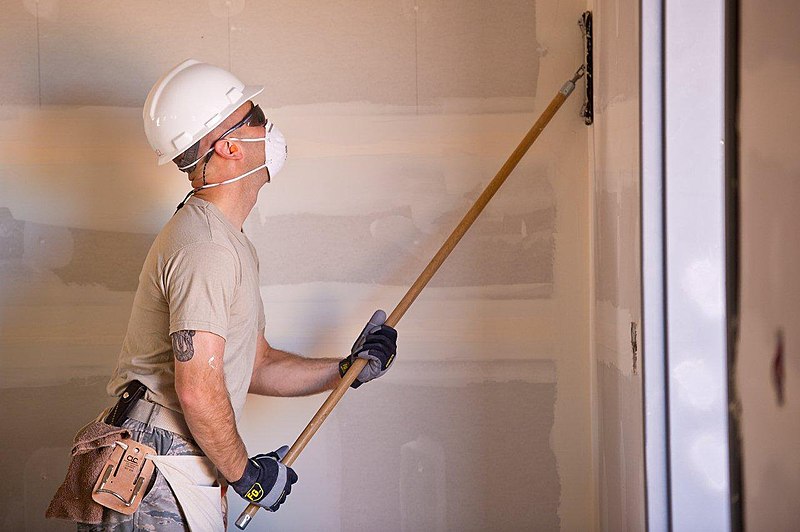Drywall is a construction material that is commonly used to create walls as well as ceilings. Sometimes, drywall is even used to cover a popcorn ceiling. Drywall is quick and easy to install, very durable, and in many cases requires only minor or simple repairs when damaged. However, mold, water, or fire damage may make it necessary to replace the drywall on the ceiling. Thisoption should be considered when it is absolutely necessary.
Water and Mold Damage
It is not uncommon for homeowners to complain about water damage to drywall. While the material can withstand random drips and splashes, drywall is usually affected by home water damage. Water damage can occur due to flooding and leaky plumbing pipes routed above ceilings and through wall cavities. To reduce the chances of mold growth occurring in wet drywall, it is vital to initiate effective drying techniques early following a water damage incident.
Mold damage is another reason a person may have to replace a drywall ceiling. Roof leaks and leaky pipes often cause mold damage. When a large portion of a drywall ceiling is moldy or wet, a homeowner may need more than just a spot repair. In some cases, the damage may extend so far that it may be ideal to replace an entire drywall panel or a large section of it. It may then have to be replaced with a new panel of the same size.
Fire Damage
When there is a fire, it is vital to consider fire, smoke, and water damage in regards to the drywall. It is beneficial for a home or business owner to contact a professional company about drywall that has been exposed to fire and smoke. Drywall that is exposed to fire will not only be brittle but also easily broken. The drywall, in some cases, may also have suffered from water damage when the fire was being put out. Smoke damage may also make it necessary to replace the drywall.
Conclusion
Factors that may lead to the replacement of the ceiling drywall include water, mold, or fire damage. Depending on the situation, the job can be hazardous. Consulting a professional company is always recommended. The experts can assess the scope of damage and help a client determine the best course of action.


